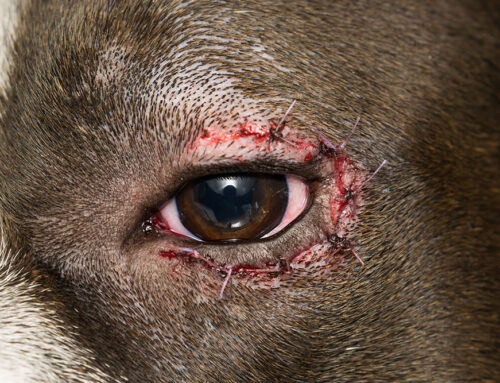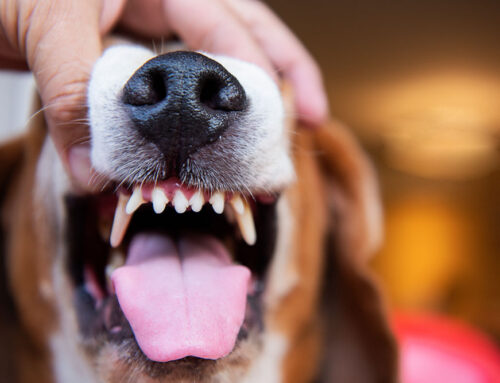Understanding Pet Dental Surgery at Creature Comforts Veterinary Service
Why Dental Health is Crucial for Your Pets
At Creature Comforts Veterinary Service, we emphasize dental health as a key aspect of your pet’s overall well-being. Dental issues can lead to serious health problems, including infections, tooth loss, and even organ damage due to bacteria spreading from the mouth. Poor dental health may also affect your pet’s behavior, leading to irritability or lethargy due to discomfort. Maintaining dental health is about more than clean teeth; it’s about preserving your pet’s quality of life.
Signs Your Pet Might Need Dental Surgery
Recognizing dental distress can help prevent serious health issues. Symptoms that may indicate the need for dental surgery include:
- Persistent bad breath: Often a sign of periodontal disease or infection.
- Difficulty chewing or dropping food: Could indicate pain or loose teeth.
- Visible tartar or plaque buildup: This can harbor bacteria, leading to gum disease.
- Swelling around the mouth: May suggest an abscess or severe infection.
- Bleeding gums: A sign of gingivitis or advanced periodontal disease.
If you notice any of these symptoms, consult with a veterinarian for a proper assessment. Prompt attention can prevent progression to conditions that could affect the heart, liver, and kidneys.
Common Dental Procedures for Pets in Saylorsburg, Pennsylvania
In Saylorsburg, we offer various dental procedures to address and prevent oral health issues, including:
- Scaling and Polishing: Similar to a human dental cleaning, this procedure removes plaque and tartar to prevent gum disease.
- Extractions: Necessary for irreversibly damaged or decayed teeth to prevent pain and infections.
- Advanced Surgeries: For severe cases, such as jaw fractures or major oral diseases, which can impact your pet’s ability to eat and their overall quality of life.
When Are Dental Extractions Necessary?
Dental extractions remove teeth that may cause pain or infection, such as those affected by decay, trauma, or overcrowding. Removing these teeth can prevent further infection and discomfort, and avert issues related to malocclusion.
Advanced Dental Procedures for Pets
For pets needing more than a simple extraction, we offer advanced dental care options, including:
- Root Canals: To save a tooth that has been compromised but is not beyond repair, preserving its function and preventing infection spread.
- Dental Crowns: To protect and preserve a damaged tooth, particularly in cases of fractures or extensive wear.
- Jaw Fracture Repairs: To address severe dental traumas, ensuring your pet can eat and function normally.
The Role of Diagnostics in Dental Care
Accurate diagnosis is key to effective treatment. At Creature Comforts, we utilize:
- X-rays: To view below the gumline and identify hidden problems, such as tooth root abscesses or bone loss due to periodontal disease.
- Oral Exams: Comprehensive evaluations to assess dental health, often revealing issues not apparent through visual inspection alone.
Learn more about our diagnostic tools and techniques on our Diagnostics page.
Preparing Your Pet for Dental Surgery
Preparing your pet for surgery is crucial for a successful outcome and includes:
- Following pre-operative instructions: Provided by our veterinary team, which may include fasting guidelines and medication adjustments.
- Ensuring your pet is calm and comfortable: Before the procedure, which can help reduce stress for both your pet and you.
What to Expect After Dental Surgery
Post-operative care is essential to ensure a smooth recovery. We provide detailed instructions on:
- Managing pain and discomfort: With prescribed medications and possible dietary adjustments.
- Feeding and care techniques post-surgery: Soft foods may be necessary until your pet has fully healed.
- Recognizing signs of complications: Such as excessive bleeding, swelling, or refusal to eat, which should be reported immediately.
Should you observe any troubling signs, please contact us immediately.
Preventative Dental Care Tips
Preventative care is vital in maintaining your pet’s oral health. Tips include:
- Regular brushing: Ideally, daily brushing using pet-safe toothpaste to prevent plaque buildup.
- Appropriate diet: Providing dental chews or specially formulated foods that promote oral health.
- Routine dental check-ups: Every six months to a year, depending on your pet’s age and dental health status.
For a practical guide on how to brush your dog’s teeth, check out this resource from CSU.
FAQs About Pet Dental Health
We address common questions about pet dental care, such as:
- How often should my pet have dental cleanings? Generally, every 6-12 months, but your vet can provide specific recommendations based on your pet’s needs.
- What are the signs of dental disease in pets? Besides bad breath, look for changes in eating habits, drooling, or pawing at the mouth.

Contact Us Today for Your Pet’s Dental Care Needs
We are dedicated to the dental and overall health of your pets. Contact us today to schedule a dental check-up and ensure your pet stays healthy.
Tips and Tricks for Maintaining Your Pet’s Dental Health at Home
- Introduce Dental Care Early: Start dental care routines when your pet is young to get them accustomed to the process.
- Use VOHC-Approved, Pet-Friendly Products: Always choose toothpaste and dental products specifically formulated for pets.
- Monitor Chewing Habits: Provide safe chew toys that help clean teeth and strengthen gums.
- Watch for Behavioral Changes: Such as reluctance to eat or play, which could indicate dental pain.
By incorporating these practices into your daily routine, you can significantly reduce the risk of dental disease and avoid potential emergencies. Remember, early intervention and consistent care make all the difference in your pet’s oral and overall health.







Leave A Comment